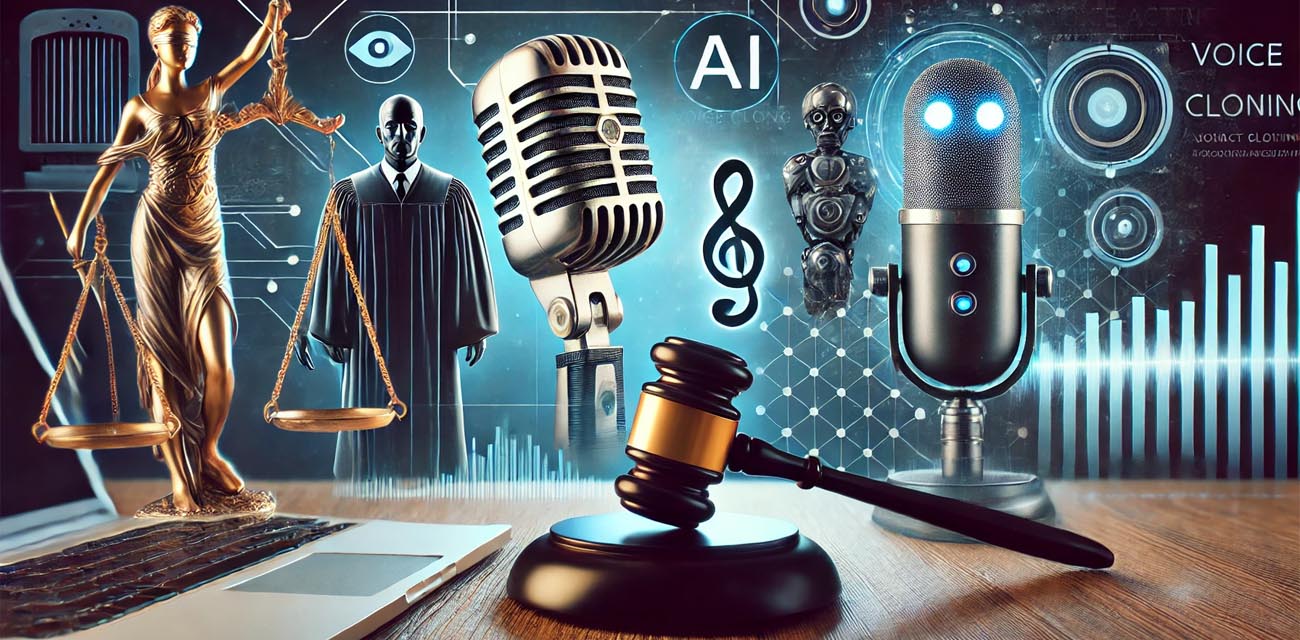In a groundbreaking legal battle, voice actors Paul Skye Lehrman and Linnea Sage have filed a federal class action lawsuit against the artificial intelligence startup, Lovo, accusing the company of breaching contracts and illegally cloning their voices. This lawsuit highlights the growing tension between the voice-over industry and advancements in AI technology, raising critical questions about trademark laws and the ethical use of artificial intelligence.
The Allegations
Lehrman and Sage were hired by Lovo in 2019 and 2020, respectively, to provide voice clips under the pretense that they would be used for internal research only. Both actors were given written assurances by Lovo that their recordings would not be used publicly. However, Lehrman and Sage discovered that their voices had been cloned and used in various public content without their consent.
“On three occasions in writing they had given me assurances of how and where it would be used for internal purposes only and never forward facing,” Lehrman said. His shock turned to outrage when he stumbled upon his voice in a YouTube video and a podcast he had never recorded. “My voice is out there saying things that I’ve never said in places that I haven’t agreed to be a part of,” Lehrman added. “We are now in a science fiction come true.”
Legal Battle
The lawsuit alleges that Lovo violated trademark laws by using the actors’ voices without permission, effectively cloning their vocal likenesses for commercial use. Lovo advertises an “AI voice cloning tool” that allows users to upload or record an audio sample, which is then turned into a custom voice clone. This capability has sparked significant concern within the voice-over community and beyond.
Ryan Schmidt of Bowen Law Group, who is representing Lehrman and Sage, emphasized the urgent need for federal legislation to protect individuals from unauthorized AI replication of their voices. “We need federal AI likeness protection, and we needed it yesterday,” Schmidt stated. “We need a uniform statutory scheme that’s gonna protect not only public figures and celebrities but just about every person and citizen of America, because AI can clone and replicate anybody.”
Implications for Voice Actors
The implications of unauthorized voice cloning are profound, particularly for voice actors whose livelihoods depend on their vocal talents. Lehrman and Sage have expressed deep concerns about the future of their profession. “I have such an incredibly pessimistic view of the future of voiceover,” Sage said. “So far this year to date I’ve lost 75% of the work that I would’ve normally done up until now. And I am expecting that to get worse.”
Lehrman echoed these sentiments, highlighting the broader risks posed by AI voice cloning. “This is about protecting individuals who have a voice that can be exploited,” he said. “And unfortunately that’s everyone and anyone.”
A Broader Industry Concern
The lawsuit against Lovo is part of a larger conversation about the ethical use of AI in media and entertainment. In May, actress Scarlett Johansson expressed her shock and anger when she discovered that OpenAI’s ChatGPT had used a voice that sounded like hers without her consent. Although OpenAI founder Sam Altman clarified that the voice was not Johansson’s, the incident underscored the need for clear regulations and protections against unauthorized use of digital replicas.
AI and its implications were also central to last year’s SAG-AFTRA strike, which resulted in a new actor contract that includes limits on the use of artificial intelligence. Under this contract, producers for TV and film must obtain consent from actors before using a digital replica of their voices and are required to provide compensation for such use.
The Road Ahead
As the legal proceedings against Lovo unfold, the case is expected to set a significant precedent for how AI voice cloning is regulated and managed. Lehrman and Sage’s lawsuit aims not only to seek justice for their personal grievances but also to push for broader protections for all voice professionals.
The outcome of this lawsuit could have far-reaching implications for the voice-over industry and the use of AI in entertainment and media. It serves as a stark reminder of the need for robust legal frameworks to keep pace with technological advancements and to protect individuals’ rights in the digital age.
The lawsuit filed by Paul Skye Lehrman and Linnea Sage against Lovo represents a critical moment in the intersection of AI technology and the voice-over industry. As AI continues to evolve, it is essential to establish clear regulations and protections to ensure that the rights of voice actors and other professionals are safeguarded. This case underscores the urgent need for federal AI likeness protection and highlights the broader implications of unauthorized voice cloning in the digital era.

